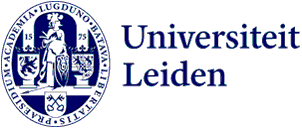
Transgressive behaviour Professor of Archaeology plausible, Court still rejects dismissal
It is sufficiently plausible that, during her employment, a professor of archaeology at Leiden University was guilty of prolonged transgressive and unacceptable behaviour, ‘which also at that time could be classed as unacceptable’.
This is the conclusion of the District Judge at the Court of Amsterdam in her findings of 11 August 2025. This decision is in response to the university’s request to terminate the employment contract with this professor, who was also Dean of the Faculty of Archaeology for a period of five years.
Nonetheless, the District Judge rejects the request to terminate the employment contract, and states that the university should first undertake a healing process with the professor.
Extensive and meticulous investigation
In her decision, the District Judge assumes the correctness of the findings of the temporary, independent investigating committee set up by the university following a large number of reports about this behaviour. She describes the representation of these findings in the advisory report as ‘transparent’ and refers to ‘an extensive and meticulous investigation’.
The District Judge is resolute about the transgressive behaviour: ‘The statements of the informants are convincing, consistent and clear. The professor can be held accountable for not being sufficiently aware of the effects of her behaviour on others.’
In addition, the District Judge establishes that two violations of academic integrity termed ‘serious’ in the advisory report took place. These relate to in 2009 the removal of teeth from human remains without permission, and in 2015 working in Grenada without prior written permission.
Rejection of termination request
The District Judge does not, however, at this point in time approve the university’s request to terminate the employment contract with the professor. The Judge considers that the university must now first examine the possibility of ‘healing’ – for example in the form of mediation – which was also the advice of the independent investigating committee
The District Judge states in the decision: ‘The parties must first enter into discussion with one another and with the faculty about acceptable and unacceptable behaviour and how what is for everyone – not least the informants – a distressing situation can be resolved in a meaningful way.’
A further argument in the ruling of the District Judge is that the professor is close to pensionable age, and that termination of the employment contract will have serious consequences for the professor and will also involve heavy financial costs for the university. She therefore considers it reasonable to allow the employment contract to continue until the professor reaches pensionable age. During this period, an attempt can be made to outline the recommended healing process. The District Judge determines that the professor must have the opportunity to ‘reflect on her behaviour and how this was experienced – in any event by the informants’. Some reflection is also necessary on the part of the university.
The university is also not blameless
The District Judge states that blame can also be attributed to the university, given that there were no checks or supervision of the work of the professor during fieldwork trips and that during the period of her employment she has never been called to account for her behaviour or her actions.
In the judgement of the District Judge, the university was also premature in deciding to apply for termination of the employment contract. The professor should have had more time to consider the reproaches and should have been given the opportunity to modify her behaviour.
Refusal of access to premises
The District Judge denies the counter request of the professor to be allowed access to the public premises and spaces of the university, since it is has become ‘sufficiently plausible’ that she exhibited prolonged undesirable behaviour during her term of employment. ‘Discussions first have to take place in the context of the recommended healing process (…), and appropriate further measures can be decided at a later date.’ The District Judge also refuses the other requests and counter requests made by the professor, such as the rectification on the website, the hearing of witnesses and the reimbursement of the legal costs incurred by the professor.
Reaction of the Executive Board
The Executive Board states in an initial reaction that it regards as positive the fact that the primary issue, namely the serious undesirable and culpable behaviour of the professor, has been found by the District Judge to be sufficiently plausible and that two serious violations of academic integrity have been established. ‘This decision is then above all a recognition of the many years of suffering inflicted on the informants, who were courageous enough to come forward.’
‘This transgressive and unacceptable behaviour was the motivation for our request to terminate the employment contract. Our reasoning was as follows: if this behaviour does not warrant dismissal, what behaviour does warrant it?
‘In her decision, the District Judge observes that we should have first made an effort towards healing, and refers us to “reflection” on our own role. We understand this: we are a learning organisation and as the Executive Board we want to look critically at ourselves and draw lessons from this case. We also fully accept what the Judge says about the healing process and will start working on this.’
